
Composers
and their string quartets
Vox Novus in collaboration with Virtual Concert Halls is presenting the works of living composers and their string quartets. Composers will be featured here once committed to the performance.
This unique broadcast is presented LIVE online to 5 streaming platforms: Youtube, Facebook, Vimeo, Twitch, and Periscope. All performances will be archived on their related platforms.
Composers will be featured LIVE online during the concert to present themselves and describe their works to the audience. A host will introduce the musicians and the composers.

Quarantine Quartet by William Toutant
William Toutant was born in Worcester, Massachusetts. He received his BA and MA from The George Washington University and his Ph.D. in music theory and composition from Michigan State University. He joined the music faculty of California State University, Northridge in 1975. During the next 38 years he not only taught in the Department of Music, but he also served in a variety of administrative positions including Dean of the Mike Curb College of Arts, Media, and Communication. For eighteen years wrote and hosted the weekly radio program, “The KCSN Opera House.” He became Professor Emeritus in May 2013. His music is available on North/South, Capstone, Centaur, Phasma, and Navona records. He lives in Los Angeles with his wife, Ligia Toutant.
Program notes:I wrote this piece during the quarantine/lockdown ordered caused by the Covid-19 pandemic. The piece reflects my varied emotions during this time of enforced confinement.
Structurally, the piece consists of a germ motif heard at the beginning and a short theme that begins with the ascending sixth of the germ motif. This short theme is immediately fragmented and imitated among the four instruments. There are two slower fugato sections; the subject of each is a rhythmic variant of the short theme. In the second fugato, each entry of the subject is varied rhythmically. At the end of the piece each of the three ideas (the first theme and the two fugato subjects) is played successively in stretto. Near the end of the piece, all three ideas are twice played simultaneously. The opening motif is heard at various points in the piece and very prominently at the end.
https://williamtoutant.weebly.com/
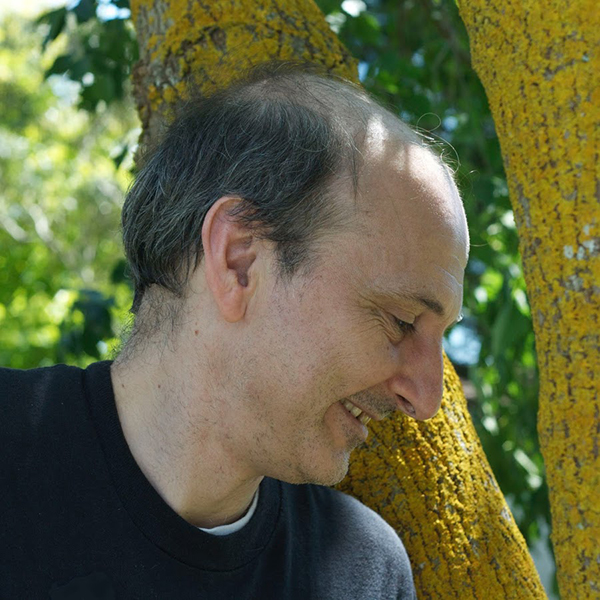
Reef Dive Quartet by Miguel Heatwole
Miguel Heatwole began his career as a choral musician during the 1990s. As musical director of Ecopella and of the Solidarity Choir he arranged and composed numerous pieces on environmental and social justice themes. He has led the choirs, and his smaller ensemble Andsome Friends, in well over a thousand performances. In 2005 he recorded his song cycle, Unrest, with The Song Company.
Miguel is also a folk singer and songwriter. He has facilitated festival choirs, singing workshops and sessions, and has produced a series of compilation albums of contemporary folk singers for a project entitled The People Have Songs.
His concurrent interest in instrumental composition has produced two orchestral tone poems and a variety of agile and expressive chamber works, including two string quartets. He has also written a number of airs, dances and slip jigs for traditional folk instruments.
As the son and uncle of marine biologists my imagination took me to the Great Barrier Reef and drew me under to a threatened world of spectacular alien beauty. Tritones swam smoothly with me through eerie waters of my adventure, alive with colourful fish flashes and weirdly graceful denizens.
The second movement begins with a melody whose sweetish flavour nevertheless avoids flippancy - flirt ‘though it may with its counterpointed cousins. After a couple of gradual ascents through varied terrain we make a temporary halt at the summit before the original melody returns, in subterranean disguise, to herald a brief final passage whose rhythmic energy foreshadows the coming final movement.
In whimsically applying the bow to the familiar time signature of the slip jig I have not intended to speak traditionally. The talkative contributors to this four-way conversation may not have Irish accents, but they do manage an energetic lilt.
http://miguelheatwole.com/
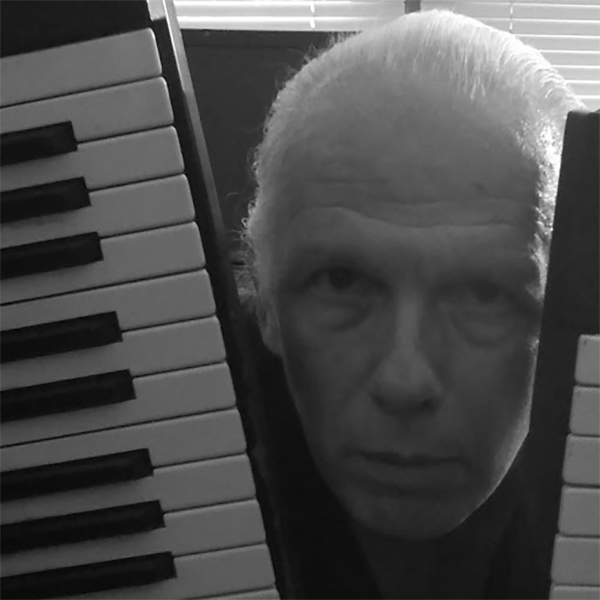
String Quartet # 3 by Ken Paoli
Ken Paoli, Professor of Music at College of DuPage, studied composition with Phil Winsor and. M. William Karlins. Ken is involved in archiving and researching the works of American composer Phil Winsor. His paper on Winsor’s “Formosan Aboriginal Legends” was presented at WOCMAT 2016 in Taoyuan, Taiwan and a paper on Winsor’s MAX/MSP instrument, MYST was presented in August 2018 at the International Computer Music Conference in Daegu, South Korea.
Ken’s research interest includes algorithmic composition and his paper titled “Macrostructure and Transition in an Algorithmic Composition Environment” was published in the proceedings of the ICMC in 2017 and his paper titled “Hindemith and Algorithmic Harmonic Generation” was published by the ICMC in 2019.
Recent computer-assisted compositions include: Spazio Sconosciuto an audio-visual work, Sonare for Chamber Orchestra, Noodlin for Four for Jazz Quartet, Burbs State of Mind an Algorithmic Rap Work and Harmonic Flux 3 for Organ.
String Quartet 3 was written while serving as a visiting professor at National Chiao Tung University in Hsinchu, Taiwan. The work is in three movements and was algorithmically generated using freely applied serial techniques. The organization of rhythm was based on manipulations of the Fibonacci number series. The first movement feature a series of duets as melodic material moves among varying instrumental pairs. The second movement features a viola solo in a recitative like style. The finale again features duets in a development section based on the dissolution and fragmentation of melodic material.
https://www.kenpaoli.com/
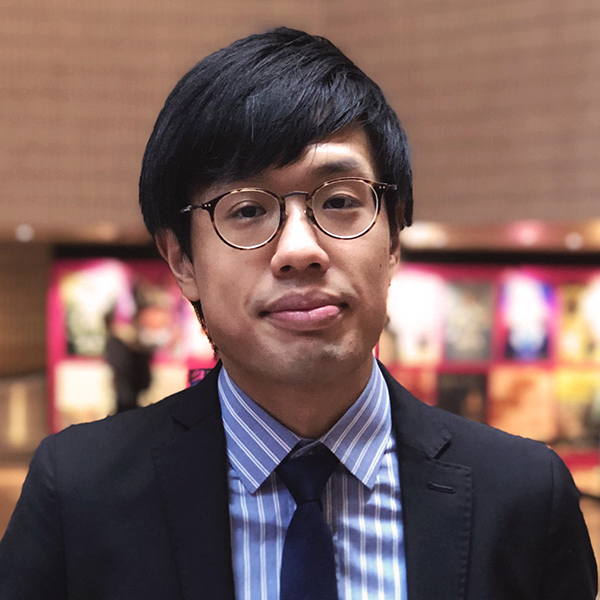
Consolation and La Serenata from Suite for String Quartet by Composer Kevin Pang
Dr Kevin PANG is a Hong Kong-based composer and medical doctor. He completed his medical degree and M.A. in Music (graduated with Dean's List award) at the Chinese University of Hong Kong, where he is currently studying M.Mus. in composition under the supervision of Prof Chan Kai-Young. His compositions had been selected as the submission piece from Hong Kong to the International Society for Contemporary Music World New Music Days 2021, Composer's Voice Concert of Vox Novus, Hong Kong Contemporary Music Festival 2020, New Generation 2020 and Music Salon of Hong Kong Composers' Guild. His recently collaborated performing groups included the Lehner String Quartet, Cong Quartet, the Stellar Trio and the Sregnis Singers.
Consolation
This opening movement was inspired by a poem of the same title, written by the Russian poet Alexander Pushkin. In the poem, the poet reminded readers to remain optimistic and hopeful amidst misfortunes in life. Over the past year, the pandemic had brought about devastating changes to everyone’s life. Here, I used two contrasting musical ideas to echo the expression of hopefulness and despair. It is perhaps important for us not to lose hope in this tough time.Consolation
If you were deceived by life,
Don’t feel dismal, don’t get mad!
Be at ease and don’t feel sad:
The days of joy will soon arrive!
The heart can’t wait for this to pass;
The present is depressing here:
All is fleeting rather fast;
That which passes will be dear.
(Poem by Alexander Pushkin. Translated by Andrey Kneller and granted permission for use by translator.)
La Serenata
The second movement was written as an impression to serenade, a musical genre intended for evening performance historically. The music began with a light atmosphere. It gradually became unsettling in the middle, but soon resolved back into the familiar main theme near the end I found inspiration for this piece while working night shifts during the pandemic. This piece was an expression of a reflective evening mood and a recollection of vanished fond memories, which seemed to have become so distant in times of pandemic
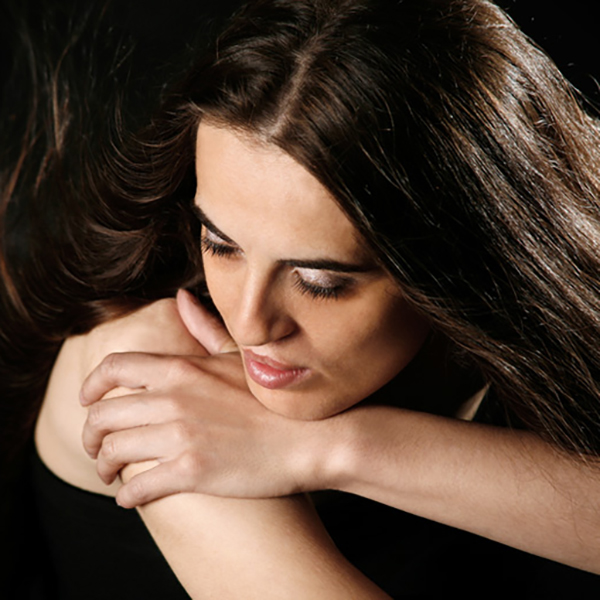
In Modo Lidico by Tatiana Mikova
The music of London based Czech composer Tatiana Mikova straddles two worlds: The concert hall and the movie. She has been writing music for films since 2003 after her earliest concert works. Besides those she also wrote a number of orchestral works (Symphony No.1, Sinfonietta, etc.) as well as chamber pieces (Two Nonets, Rondo, Quartet In Modo Lidico, etc).Classical music Awards Her Two Nonets performed by renowned The Czech Nonet won Global Music Awards/USA and were featured on American Public Media/Performance Today, Classical KUSC/Los Angeles, Classical KDFC/San Francisco and other stations worldwide.
Tatiana received her M. Mus degree in Music Composition from UWL/London College of Music/UK (Francis Pott), and studied at Oxford University OUDCE (Jonathan Darnborough).
Tatiana Mikova’s Quartet In Modo Lidico refers to Morava – a region of the Czech Republic, where the composer was born. This piece tends toward minimalism, where the Czech folk music, particularly the music of Moravian region with rich and diverse folklore features quite prominently.
The three movement piece with characteristic lydic quarter, typical for Moravian folk music, simple open harmonies, rhythmic patterns combined with slowly building dynamics and textures create celebration atmosphere with strong folk dances links. The Moravian folk music influence can also be found in music of the distinguished Czech composers of the 19th and 20th century such as Leos Janacek and Vitezslav Novak. While the first two movements were written in Prague in 2012, Mikova later moved to London where she wrote the third movement and completed the entire work.
www.tatianamikova.com
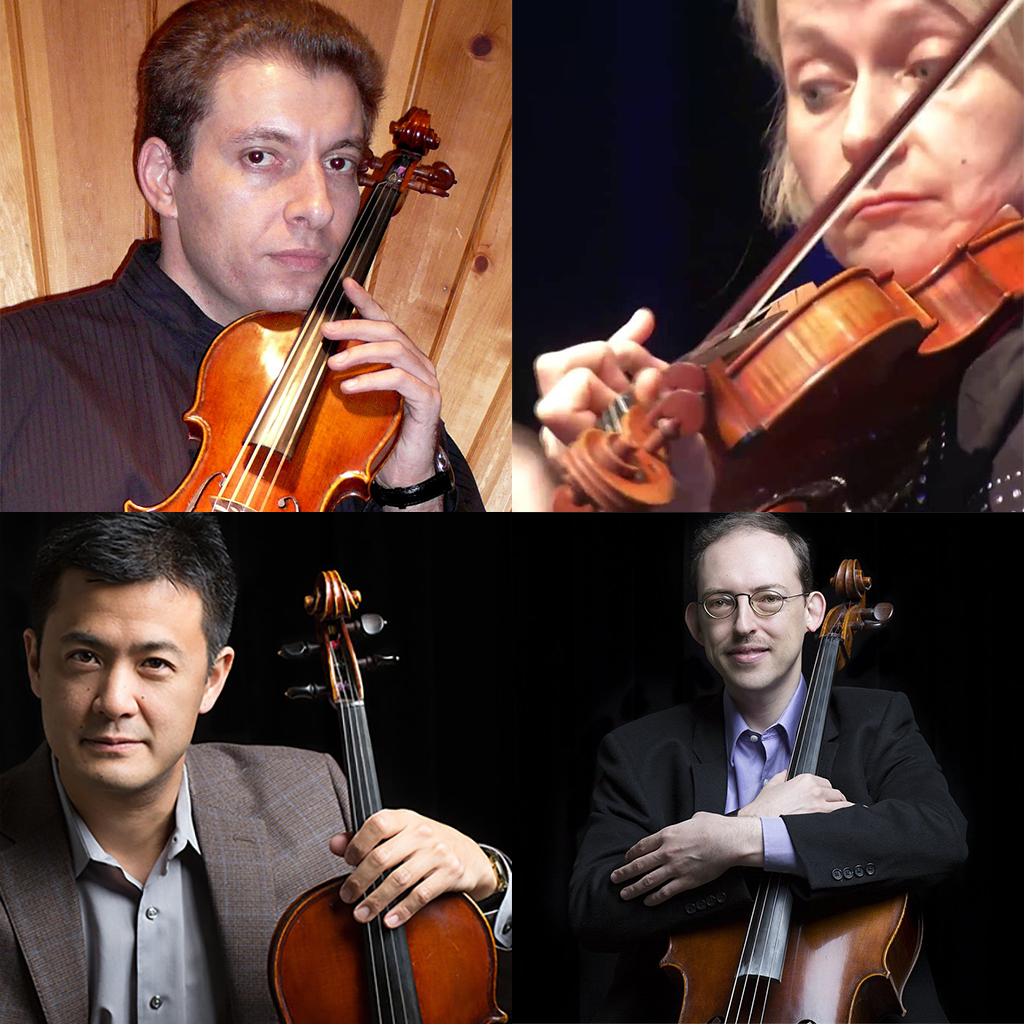
All works performed by the:
Lehner String Quartet
Natasha Bogachek, violin
Zino Bogachek, violin
Philippe Chao, viola
Igor Zubkovsky, cello
The Lehner String Quartet is composed of four talented musicians who are members of the Kennedy Center Opera House Orchestra (Washington National Opera): Violinists Natasha Bogachek and Zino Bogachek, violist Philippe Chao, and cellist Igor Zubkovsky. Each are accomplished performers in their own right, they have a history of performing together to bring music to audiences around the world. Virtual Concert Halls and Vox Novus are proud to feature these string players to present new music by living composers.